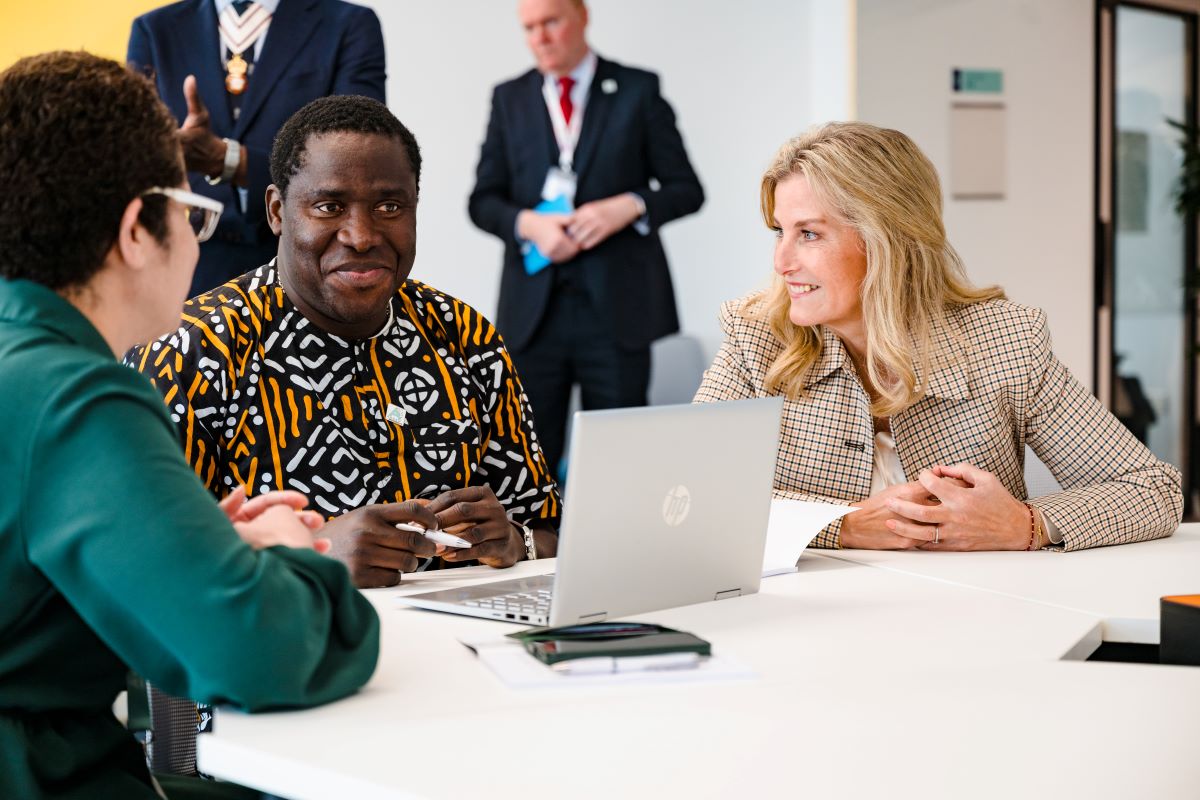Why UK businesses must incorporate mentoring in 2023

This year saw the biggest National Mentoring Day on record in the UK. Over 170,000 organisations supported the initiative including the UK government, The Football Association (FA) and Google, proving how valuable major organisations across all sectors view mentoring. Yet at a time when many UK businesses are under increasing financial pressure and the insolvency rate for companies is at a 13 year high, too few are actively engaging in mentoring schemes, which could transform their success during this difficult economic period.
In a government report launched on National Mentoring Day, three quarters (76%) of UK businesses said mentoring had been key to business growth, with 60% saying it specifically helped develop their business strategy, and more than half (52%) saying it helped boost revenue. Significantly, 66% of businesses that invested in mentoring said it helped them survive.
There is a clear case for the positive effect of mentoring in business. From my own experiences of enterprise mentoring, I know just how important it is for an organisation’s growth. Businesses that commit to structured mentoring programmes see higher engagement, collaboration and employee retention. I founded National Mentoring Day to encourage more companies to take up mentoring so they can create greater human connections within their workforces. It has never been more important than it is now to connect people with hybrid and remote working environments. And it’s why I’m calling on all UK businesses to commit to ensuring every employee from the most junior to the most senior, receives one hour of mentoring in 2023, to help secure organisations’ future success during these challenging times.
So, how can mentoring transform businesses and why is it imperative that CEOs get behind it?
Provide an invaluable source of inspiration, guidance, and support
When we think of mentoring, it’s common to envision junior members of staff receiving mentoring to help inspire and upskill them in their role. Training new or less experienced staff is of course a hugely important part of any mentoring programme, but the reason I’m asking businesses to provide mentoring for every staff member, is because it’s often the leaders at the top, who are the most in need of mentoring and for whom it has the most significant business benefits. There’s few, if any, top level businessmen and women who haven’t received mentoring at some point in their career. When you’re responsible for running a business it’s easy to become totally immersed in it and unable to see the wood for the trees at times. That’s why having a mentor, who’s walked the walk before, and can see things from an objective point of view is so crucial. Experienced business mentors can be a trusted source of support to bounce ideas off and offer guidance when it is most needed.
Improve staff productivity, retention, and future success
Mentoring promotes better employee engagement, well-being, and happiness providing a greater sense of belonging within a company and improving workplace culture. By investing in people, you let them know they are valued, which in turn boosts productivity. It’s no surprise therefore that employees who participate in a mentoring programme are 5 times more likely to advance in pay grade and have a significantly higher retention rate than those that don’t.
According to MentorCloud, National Mentoring Day’s official global partner, mentorship programmes are one of the most significant tools employers can use to foster success among their workforces. Dr. Ravi Gundlapalli, Founder of MentorCloud, said,
“Mentorship programmes are absolutely essential to driving employee’s success and allowing them to level up in their careers. If you want to produce a skilled and well-rounded workforce while broadening your employee’s perspectives at the same time, creating and structuring mentorship opportunities is the best way to start. Additionally, mentoring programmes will help your most experienced employees share cross-organisational knowledge, and give you the ability to promote top performers from within.”
Adapt to change in the market
Over time, an organisation can go through significant changes to its business model, workforce, and everyday working environment. Recent years have certainly demonstrated how changes to the marketplace can occur almost overnight, with covid and now rising inflation and economic instability causing many businesses significant challenges. At times like these, strong mentoring relationships can help employees and organisations to weather the storm and grow from it. It may be the case that employees’ roles must change, or they need to work from home rather than the office, and all these adjustments can be made easier with the help of a supportive and more experienced mentor.
Opportunity to network and build connections
Workplace mentorships can aid the networking process by allowing mentees the opportunity to benefit from a mentor’s contacts. This can be the case for CEOs wanting to enter a new market for example, who can seek the advice of another business leader who’s already successfully made that transition and can connect them with the right people. It’s also likely to be the case that senior members of the team may hold valuable contacts that haven’t been passed on to more junior members who could really benefit from them.
Establishing an internal mentoring programme also helps build connections between staff. In a recent MentorCloud survey, 44% of mentees said they felt more connected to senior leaders and experts, as a result of mentoring. In the same survey, 75% of senior executives said they felt a sense of belonging and found new purpose by helping other team members grow. This feeling of connectedness and of finding purpose is at the core of building a modern workplace moving forward. With many companies dealing with the common division between senior and junior employees, and with divisions that can be caused by remote working or working from different locations, mentoring can not only help dissipate any team tensions, it can strengthen an organisation’s culture and create a better workplace environment.
A pause to plan for the future
So many businesses are focused on the here and now that they don’t get the opportunity to effectively stop and plan for the future. Future planning is essential because as discussed earlier, the marketplace, technology and economic conditions are not always going to remain the same. There are many organisations that have fallen as a result of poor planning, Blockbuster the global video store being a prime example, it didn’t account for the speed in which technology would so quickly change the way consumers engage with films. Had it taken the time to prepare for this, it could have diversified its business and would perhaps still be with us today.
Where mentoring can help with pausing and planning is that it gives business leaders time out of their typical working day to consult with an experienced mentor in their field on how they should account for future changes in business plans. It is also an opportunity to train members of staff in the latest tech developments. This is where ‘reverse mentoring’ can come in particularly handy. Reverse mentoring is where younger staff members mentor more senior colleagues on things like social media and digital technology. It’s an opportunity to show younger employees that their skills and experience are just as important in the workplace as those of senior staff, helping them to feel more valued.
With many organisations currently feeling the strain, there has never been a better time to invest in mentoring. Mentoring can make a huge difference to the most junior member of the team up to the most senior. It creates opportunities for staff to connect, network and enhance their skill sets, while boosting productivity, innovation, performance, and growth to set businesses up for future success.
By Chelsey Baker, Founder and CEO of National Mentoring Day
As part of National mentoring Day 2023, Chelsey is calling on all UK businesses to commit to providing at least one hour of mentoring for all staff next year.
Chelsey Baker is the Chief Executive & Founder of National Mentoring Day and a global leader in mentoring. Regarded as one of the UK’s prominent business mentors, Chelsey has mentored hundreds of businesses and individuals and worked on leading government mentoring projects. She founded National Mentoring Day back in 2014 and in just eight years has grown it to be an internationally recognised awareness day, with over 250,000 organisations around the world taking part annually.
Chelsey’s inspirational mentoring style has seen her invited to speak at events across the globe, and she campaigns tirelessly to showcase the transformational power of mentorship with the aim of empowering and encouraging more people to take up mentoring.
Notable awards include; The British Bankers’ Association’s “Excellence in Enterprise Mentoring Award” at BAFTA and the Women Appreciating Women (WAW) honorary award “Visionary Woman serving humanity” in recognition of her outstanding contribution to society through mentoring.











Responses